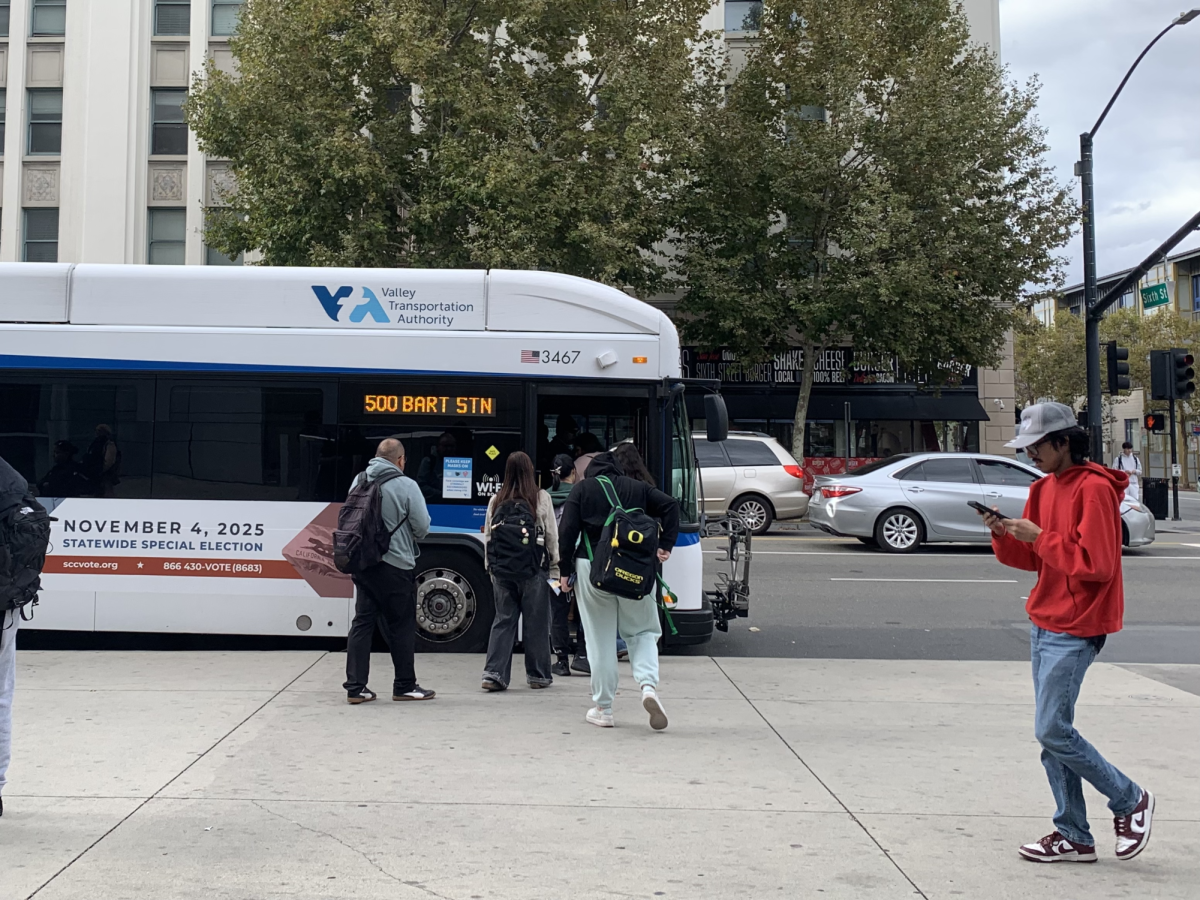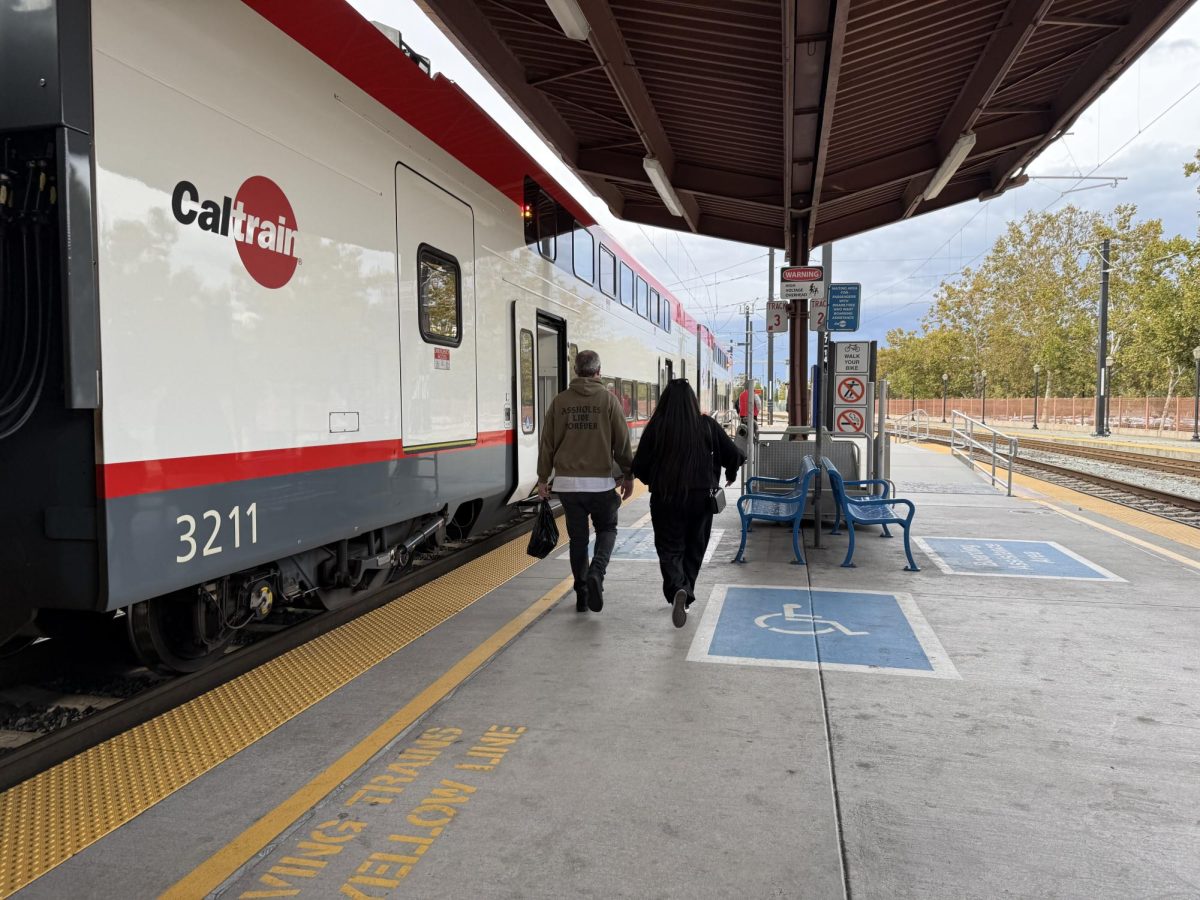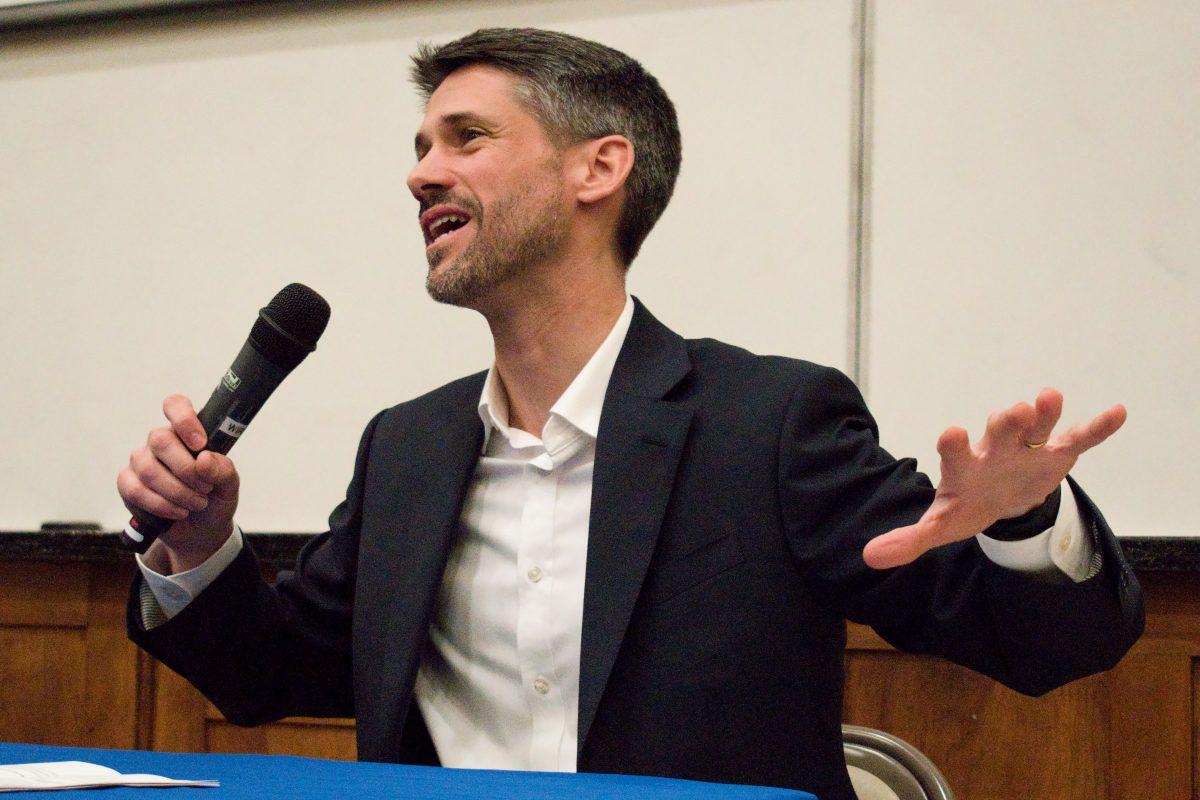San Jose City Mayor Matt Mahan gathered with San Jose State students at lecture hall 109 in Washington Square Hall at SJSU on Thursday to discuss multiple topics related to the city’s adopted operating budget plans for 2022 and 2023.
“The thing we’re all talking about is how we’re going to spend your tax dollars to provide better services to our residents,” he said.
The city’s budget is around $6 billion, according to the city’s budget plans.
Mahan said the money from the budget will be used for supporting multiple services and issues, including bonds to improve and support the city’s airport, its wastewater treatment facility, the police and fire departments, community centers, parks and more.
He said the city began to organize more of the budget toward housing because of the housing crisis, which includes more funding being directed toward solutions to decrease houselessness.
Mahan said, however, because California’s government is very decentralized, the city’s budget does not include funding for education, prisons and the medical system.
He said funding for these services come from either the federal government, the state government or local counties.
“I know that $6 billion sounds like a lot of money, but when you divide it out on a per person basis, we actually have significantly less revenue per capita,” Mahan said. “I like to say, ‘We’re a big city, but with a small budget.’ ”
Mahan said the revenue supporting the city’s budget comes from property and sales taxes.
He said other cities including Cupertino have a larger budget because they have large tech companies, like Apple and Google, located in the city.
“We’re the housing provider for Silicon Valley, which is great,” Mahan said. “But from a tax perspective, we’re actually the only big city in America where the daytime population shrinks.”
He said the population shrinks during daytime because the majority of San Jose’s residents commute to neighboring cities to work for companies and businesses, creating tax revenue for other cities.
Mahan said the city has $4 billion in unfunded pension liabilities and obligations to workers who are now retired.
These unfunded pension liabilities are putting an increasing burden on the city’s finances, making it more difficult for the city to provide essential services to its residents, according to a Nov 9, 2020 presentation from the Retirement Stakeholder Solutions Working Group.
The Retirement Stakeholder Solutions Working Group is a group of individuals who represent active and retired stakeholder groups, according to the city’s webpage.
These groups represent active bargaining groups in the city, including community groups, City Council, staff from city government, and retirees from the fire and police departments, according to the city’s webpage.
He said as a result of these liabilities and obligations, the city has to take 15 cents out of every dollar the city receives to pay retired workers back.
Mahan said as a result of these financial issues, San Jose’s city government is understaffed with a ratio of seven employees working for every 10,000 residents.
He said the city needs a strong economic development strategy to continue serving the community with high quality services.
“We have to focus, we can’t be everything to everyone,” Mahan said. “We can’t deliver all the services we’d like [to] at a high level of quality.”
Sociology senior Katherine Adamson, who is the lead organizer for Students Against Mass Incarceration, said she thinks it’s great that part of the city’s budget is being directed toward housing.
Students Against Mass Incarcerations is an SJSU student group pushing against mass incarceration in Santa Clara county and pushing to stop the new Santa Clara County jail, according to a petition linked to its Instagram account.
“I love to see that he is building more temporary housing. That’s amazing, that’s great, but we need more of it,” she said.
Adamson said she noticed most of the city’s budget was directed toward policing.
She also said she is still concerned about the increasing number of sweeps the mayor is proposing because she is worried that the city is further criminalizing houselessness.
“I’m seeing that the mayor does not prioritize housing and homelessness the way he prioritizes policing and criminalization,” Adamson said. “He doesn’t think the streets look nice when there are homeless people there.”
She said she thinks this is why the city is increasing the number of sweeps and increasing the police’s budget to “deal with this issue in a very punitive kind of way.”
“That’s not how we need to go about it,” Adamson said.
Sociology sophomore Cole Mitchell, who is a member of Students for Police Accountability, said he thinks it’s really important to put pressure on elected officials.
Students for Police Accountability is a student-run organization demanding accountability from San Jose’s Police Department, according to a post from its Instagram account.
“I think it’s really important to make sure that our politicians and our elected officials are aware of these [issues] and [are] actually listening to community members rather than who they receive money from,” he said.
Mitchell said he is not satisfied with how Mahan appeared to use his language to try and separate different social issues from one another.
He said issues with policing, houselessness and other social issues are deeply interconnected.
“[Mahan] really tried to separate the [policing and homelessness], but you really can’t,” Mitchell said.
Joseph Namba, sociology junior and Students for Police Accountability member, said he was a little upset because he wanted to hear more support for the city’s independent police auditor to do an external investigation on San Jose’s Police Officers Association.
San Jose’s Police Officers Association is a union that represents its members to sustain and enhance wages, benefits and working conditions, according to a webpage from its website.
The U.S. Attorney’s Office filed a federal criminal complaint against Joanne Marian Segovia, the then executive director of San Jose’s Police Officers Association, for attempting to illegally import and distribute opioids and other drugs, according to a webpage from the U.S. Attorney’s Office.
Segovia was apprehended by Homeland Security, according to the same webpage.
Mitchell said he can see how it was maddening to see Mahan attempt to separate issues related to Segovia’s case.
“He doesn’t want to come out and say that our police can be corrupt and it’s just infuriating,” he said.
Mitchell said no one wants to talk about how the city can add more money to the police budget.
“We want to talk about how we can actually provide meaningful change for people in the community,” he said.
Namba said Students for Police Accountability will continue to take action.
He said Students for Police Accountability has already met with Vice Mayor Rosemary Kamei and will soon meet with Sergio Jimenez and Arjun Batra, the representatives for District 2 and District 10 in San Jose, on Wednesday.
“Maybe it’s just people like us that need to give him a more clear perspective on the potential that the [San Jose’s Independent Police Auditor] could be,” Namba said.
Katherine Adamson said she would like more transparency from the mayor.
“I feel like he brushed some of these issues under the rug,” she said. “He was very charismatic in his responses, but he fundamentally tried to separate a lot of issues that were interconnected.”
Adamson also said she is kind of done with his flowery responses.
“He was here to, you know, get more votes for him for the next time he [runs for election],” she said. “He was in PR mode.”






































